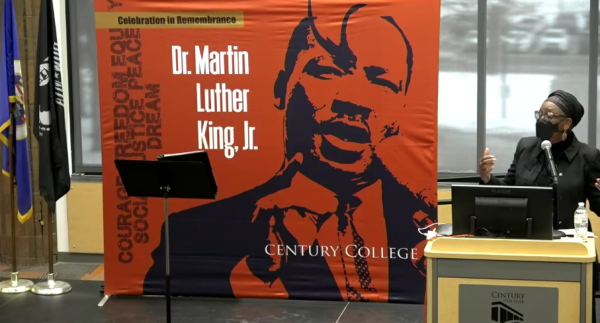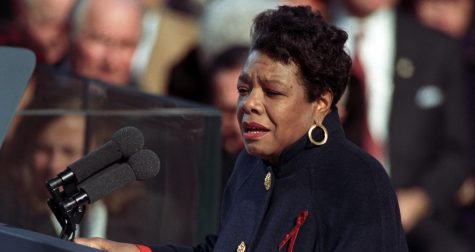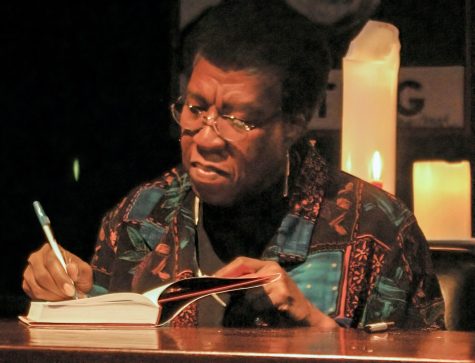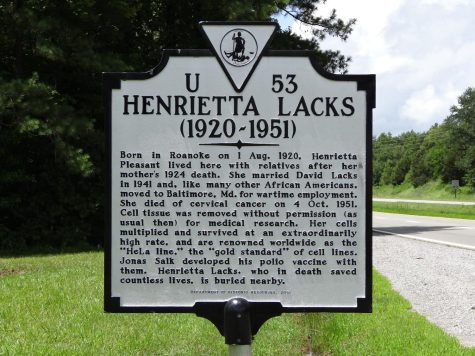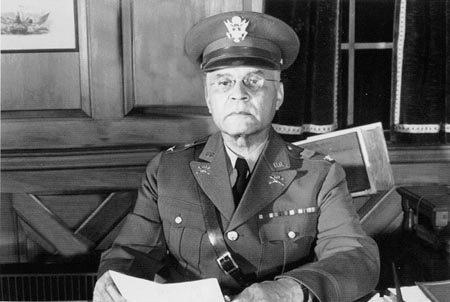Black History Is American History : Ruby Bridges
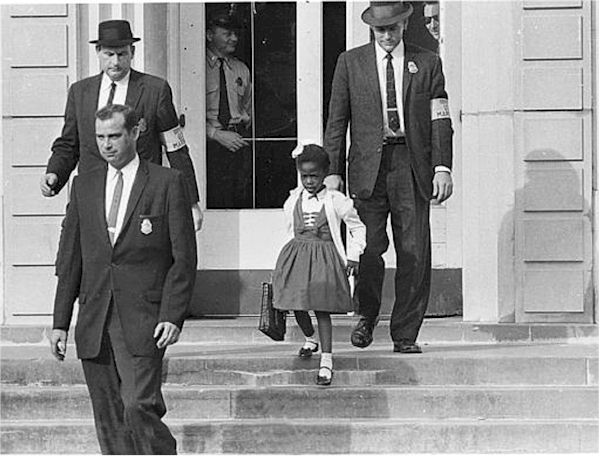
Uncredited DOJ photographer, Public domain, via Wikimedia Commons
Editor’s note: This article is the twenty-second part of a series, Black History Is American History, by Kiarra Ballard. Each day in February, we will publish a new entry in the series, focusing on an influential Black figure from history. You can find all of the entries in this series here.
In 1954, the same year Ruby Bridges was born, the Supreme Court of the United States issued its historic ruling mandating the desegregation of public schools. Her parents, Lucille and Abon Bridges, were farmers in Tylertown, Mississippi.
Since the South still rejected integration in 1959, Ruby went to a “separate but equal” kindergarten in New Orleans. However, a federal court compelled desegregation in Louisiana a year later. To determine whether or not African American students would be academically successful at the overwhelmingly white schools, the district developed admission examinations. Only five children passed the assessment, which was much more rigorous than any test administered to the White students in the same schools.
Norman Rockwell’s picture “The Problem We All Live” features Bridges’ walk to the school’s front entrance. Four federal marshals accompanied Ruby and her mother to school every day that year. For years, people hurled insults and threats at her from the streets. Unfazed, she said that she was only scared when she saw a woman carrying a Black baby doll in a casket. Her father had been hesitant to allow Ruby to attend the all-white school, for fear someone would attempt to kill her.
For their bravery and sacrifice, the Bridges family paid a significant price: Abon lost his job, and shops stopped serving Lucille at the checkout. Her grandparents, who had worked as sharecroppers on the farm for 25 years, were forced to leave.
A lifelong advocate for racial equality, Bridges founded The Ruby Bridges Foundation in 1999 to foster acceptance and inspire action through learning. In a ceremony held in 2000 in the nation’s capital, she was awarded the title of honorary deputy marshal.
Besides the Presidential Citizens Medal and the Martin Luther King Award from the NAACP, Bridges has also received honorary degrees from Connecticut College, College of New Rochelle, Columbia University Teachers College, and Tulane University. Today, she continues her work in activism while living in New Orleans with her husband.
Sources:
https://www.womenshistory.org/education-resources/biographies/ruby-bridges
https://docs.house.gov/meetings/GO/GO02/20220407/114616/HHRG-117-GO02-Bio-BridgesR-20220407.pdf
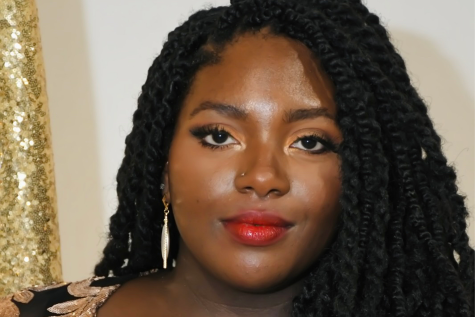
Kiarra is a Computer Science major pursuing the creative writing certificate. When not writing or reading, she can be found patching holes in her curtains...



